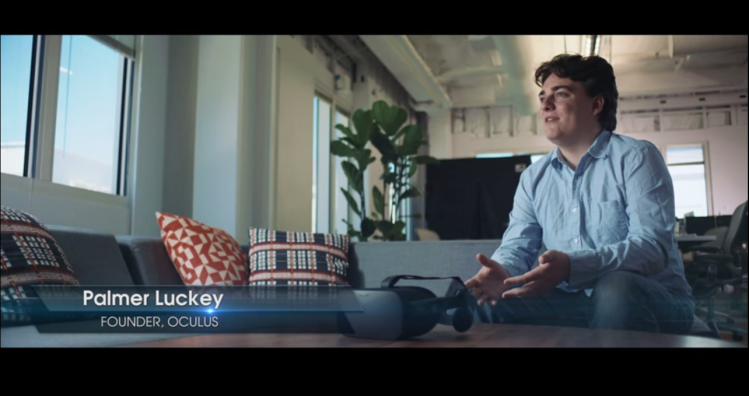Palmer Luckey may still end up in court.
U.S. district judge William Alsup has ruled that a breach-of-contract claim against Oculus VR founder Palmer Luckey can move forward (via Reuters). In May, Total Recall Technologies — a Hawaiian-based company that is making head-mounted displays — sued Luckey for violating a nondisclosure agreement and confidentiality agreement that he signed while working for the company in 2011. The suit claims that Luckey took information and feedback he received from Total Recall and used it to help build what would turn into the Oculus Rift. Luckey denies these claims, and he has said that this is about other companies wanting a piece of the $2 billion that Facebook spent to acquire Oculus VR.
While Alsup ruled that the Total Recall’s breach-of-contract claim can move ahead, the judge also dismissed all other claims made by the company. That includes a claim that Luckey defrauded the technology firm.
We’ve reached out to Oculus and Total Recall for a statement from each about the judge’s ruling, and we’ll update this story with any response from either party.
The lawsuit seems to hinge on whether or not any information or ideas Luckey eventually built into any version of the Oculus Rift came from his time at Total Recall Technologies. He was in charge of designing an early head-mounted display at the company, but it’s also possible that anything he would’ve learned at that time would not apply to the consumer Rift model that Oculus has started selling for $599.
This is also not the only company that came out to claim Oculus is using ideas and data it doesn’t own. In June 2014, shortly after the Facebook acquisition, publisher Zenimax — parent company of Fallout 4 developer Bethesda — complained that its former employee, John Carmack, stole trade secrets to use in his role as chief technology officer at Oculus VR. The judge in that case also denied a motion to dismiss it. Carmack did a bit of work on Rift’s products while he was still working for Zenimax, and the publisher claims that it owns anything he came up with during that time.
Carmack and Oculus produced a 30-page rebuttal to defend itself from that claim. Facebook has also pointed out that Rift uses zero lines of Zenimax code.
VentureBeat's mission is to be a digital town square for technical decision-makers to gain knowledge about transformative enterprise technology and transact. Learn More

